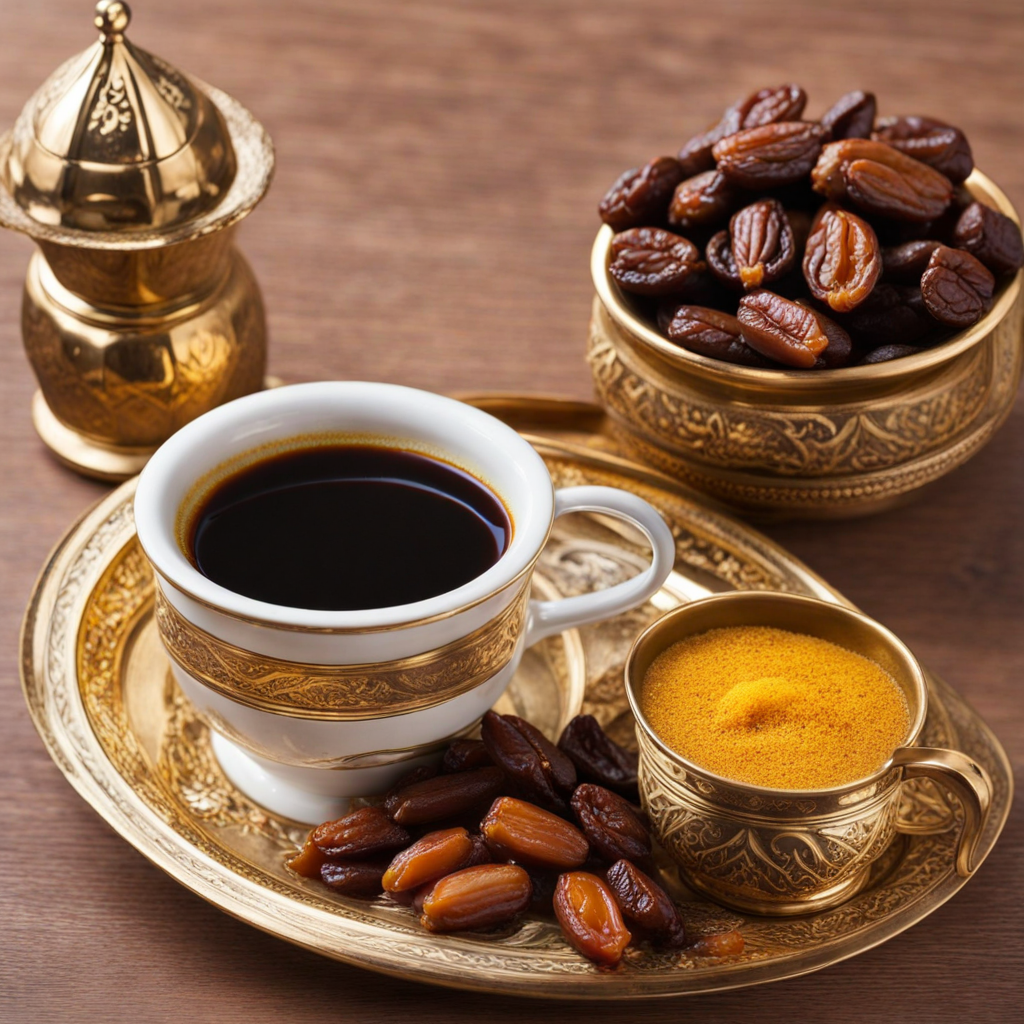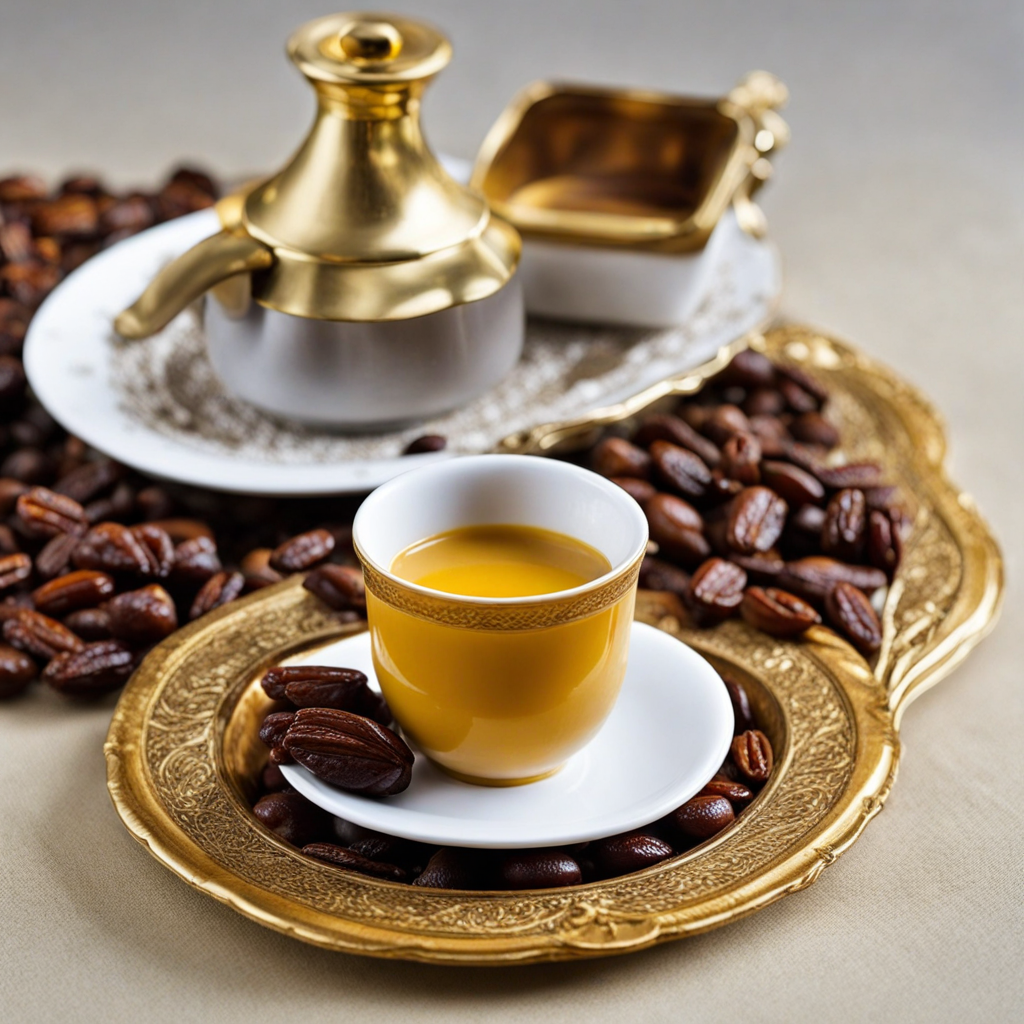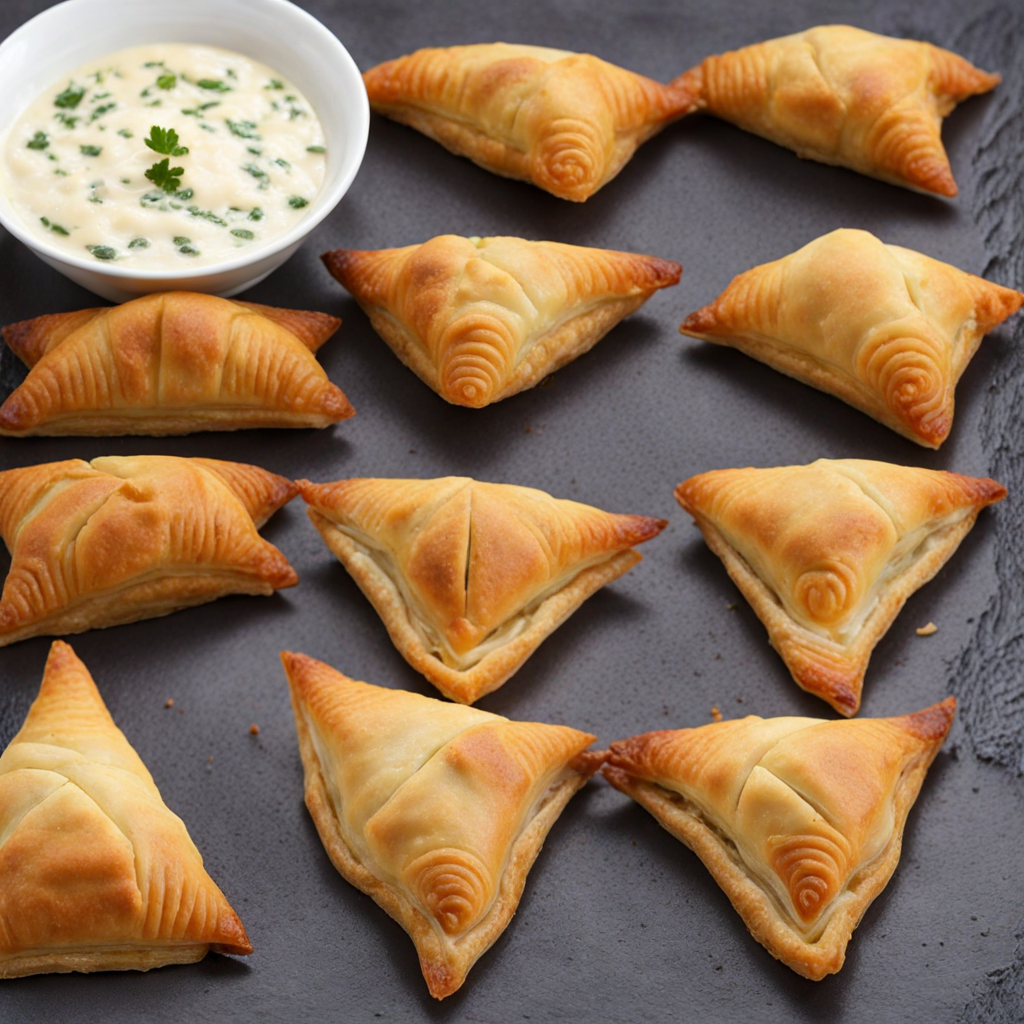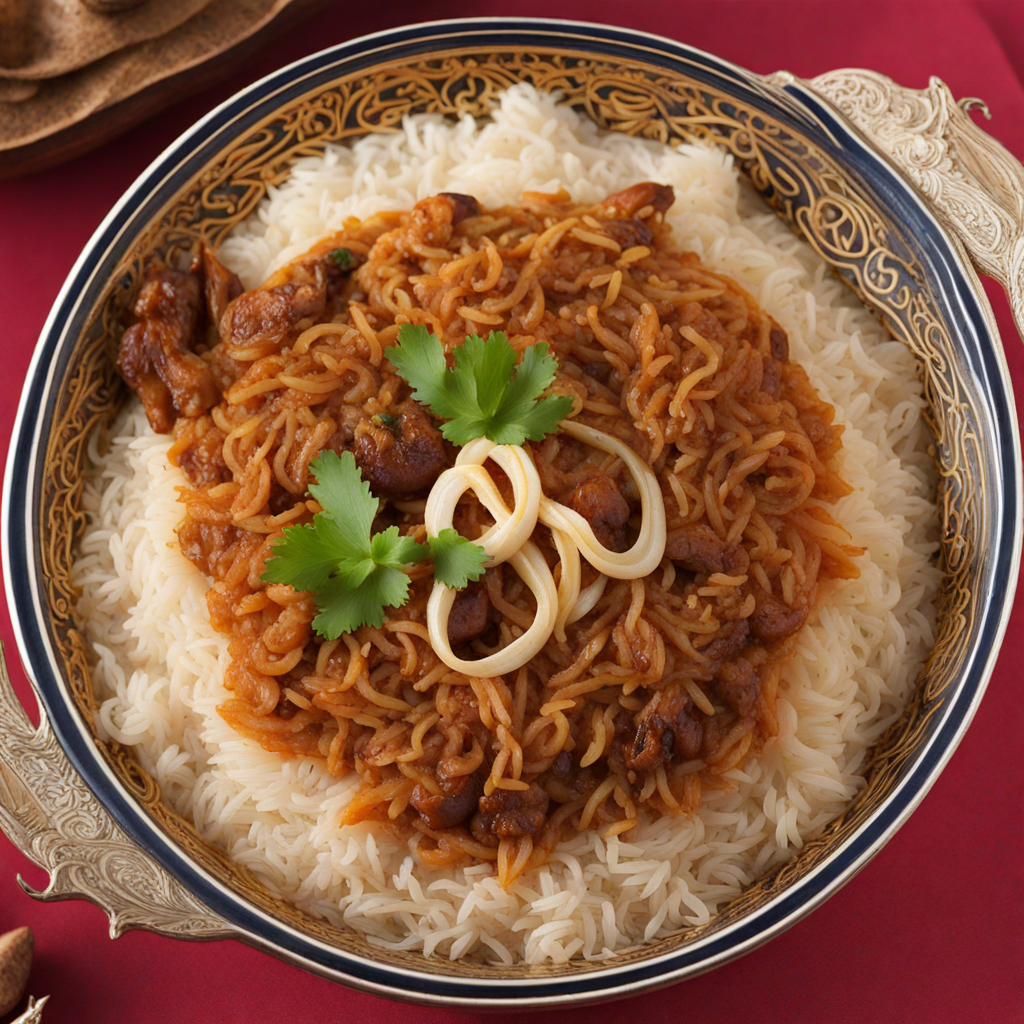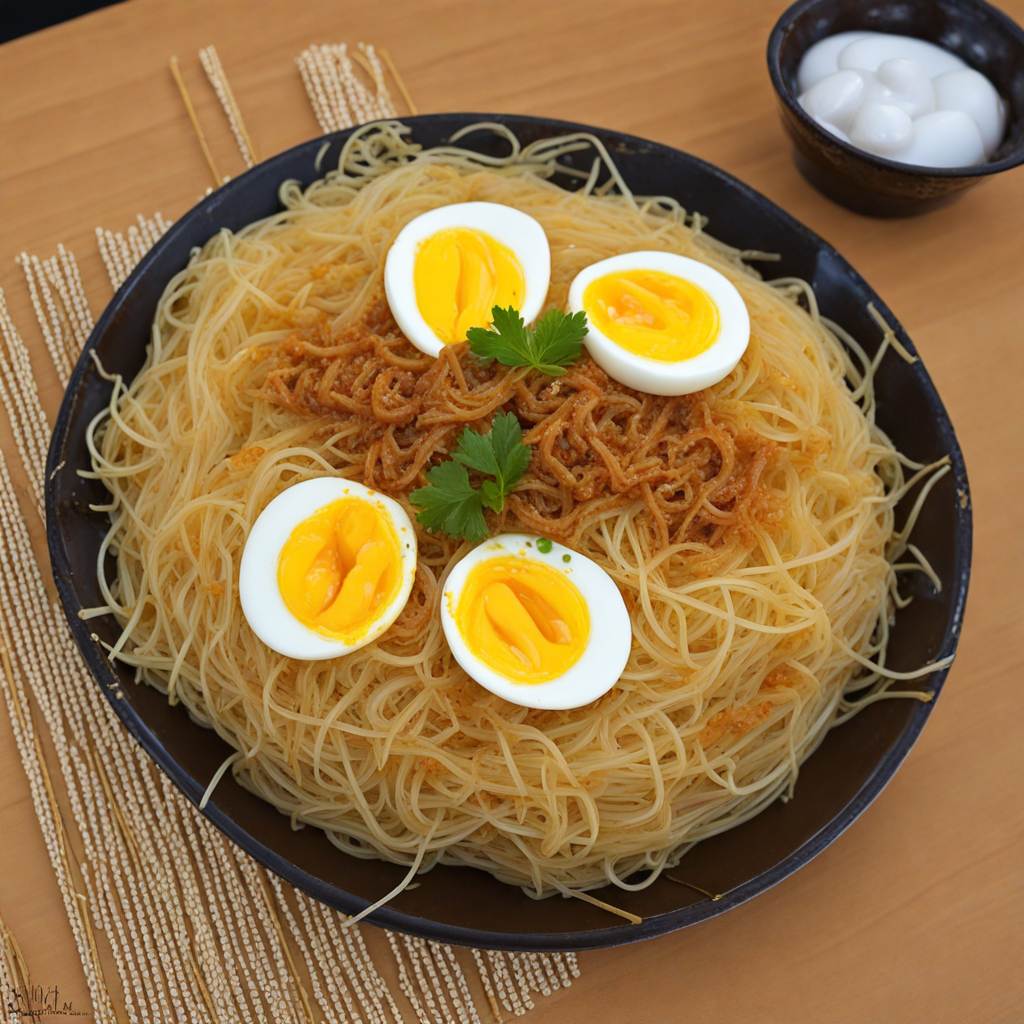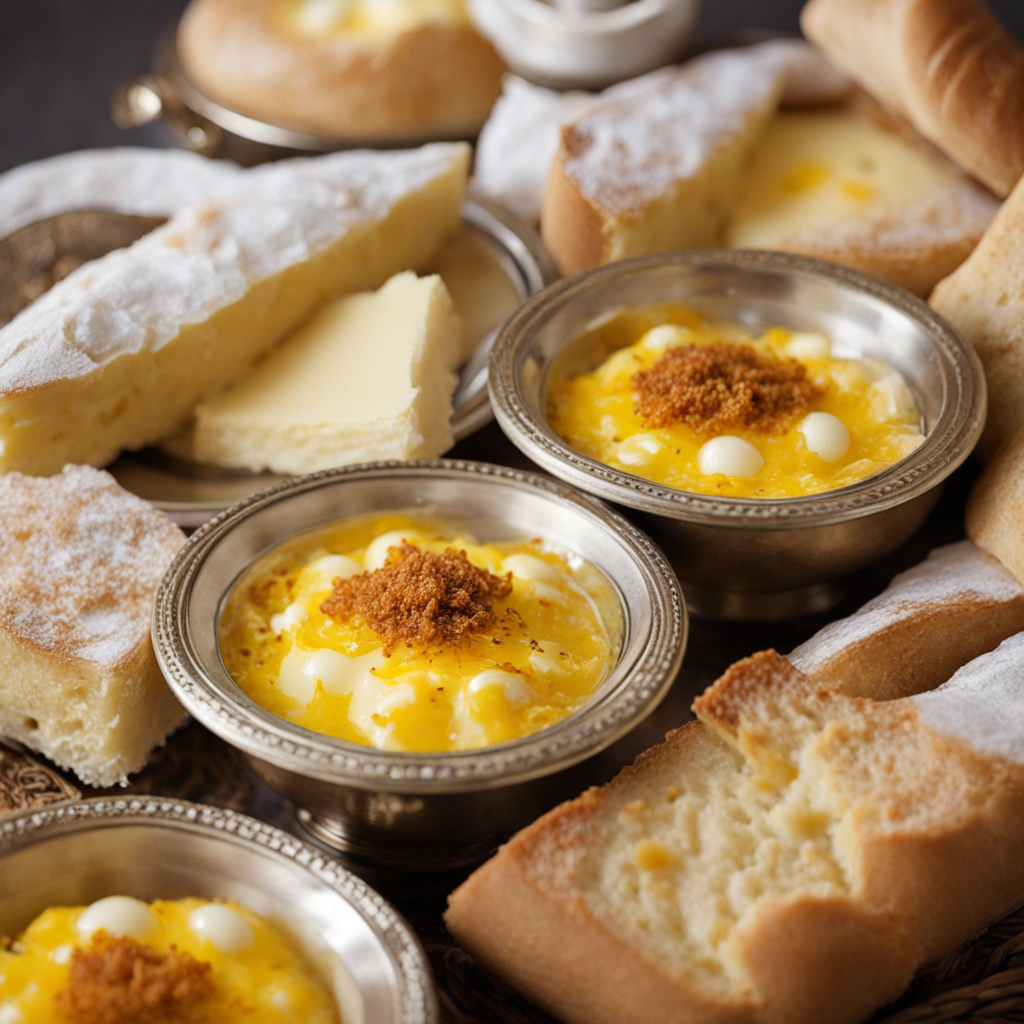Gahwa
Gahwa, the traditional Emirati coffee, is a fragrant and rich beverage that offers a unique taste experience deeply rooted in the culture of the United Arab Emirates. Unlike typical coffee, Gahwa is made from lightly roasted Arabica beans, which are ground finely and brewed with an infusion of spices such as cardamom, saffron, and sometimes even cloves. This aromatic blend not only enhances the flavor but also creates a warm, inviting aroma that fills the air, making it an integral part of gatherings and celebrations. The resulting drink is typically served in small cups, allowing you to savor each sip of its complex flavor profile. The preparation of Gahwa is an art form in itself, often involving intricate rituals that reflect the hospitality of Emirati culture. Traditionally, the coffee is brewed in a special pot called a dallah, and served with dates, which perfectly complement its slightly bitter and spiced notes. The process is as important as the drink itself, as it symbolizes generosity and friendship. Guests are often offered multiple servings, with the ritual of refilling the cup signifying continued hospitality. This tradition transforms drinking Gahwa into a communal experience, fostering connections and conversations. In addition to its delightful flavor, Gahwa carries with it a sense of history and heritage, making it much more than just a beverage. It represents a cultural connection that binds families and communities together, often enjoyed during social gatherings, festive occasions, and daily interactions alike. For those seeking to explore new tastes, Gahwa provides a warm introduction to the rich tapestry of Emirati flavors, evoking a sense of place and tradition with every sip.
How It Became This Dish
The Fascinating History of قهوة (Qahwa) in the United Arab Emirates #### Origins and Early History The beverage known as قهوة (qahwa), or Arabic coffee, has a rich history that intertwines with the cultural fabric of the Arabian Peninsula, particularly in the United Arab Emirates (UAE). Although coffee is believed to have originated in the ancient coffee forests of Ethiopia, its journey to the Arabian Peninsula is a story of trade, cultural exchange, and the flourishing of social customs. The earliest recorded mentions of coffee in the Arab world date back to the 15th century, with its popularity surging in Yemen. From there, coffee spread across Arabia, reaching the courts of the Ottoman Empire and eventually the rest of the world. The Arabic coffee preparation method, distinct from the Turkish or European styles, involves lightly roasting green coffee beans, grinding them to a fine powder, and brewing them in water, often with spices like cardamom or saffron. In the UAE, qahwa is typically made from Arabica beans, which are prized for their delicate flavor and aroma. #### Cultural Significance In the UAE, qahwa transcends mere beverage status; it is a symbol of hospitality, generosity, and social interaction. The tradition of serving coffee is deeply rooted in Emirati culture and often signifies respect and friendship. The act of offering qahwa, typically served in small, handle-less cups known as finjan, is an integral part of social gatherings, whether in a family setting, at a wedding, or during festive occasions. The preparation and serving of qahwa often involve elaborate rituals. Traditionally, coffee is brewed in a special pot called a dallah, which is designed to keep the coffee warm and is often elaborately decorated. The host pours the coffee with the right hand, usually from a height, to aerate the drink and enhance its flavor. It is customary to serve the guest three cups of coffee, symbolizing hospitality; a refusal of the third cup signifies the guest's readiness to leave. #### Development Over Time As the UAE evolved, so did the traditions surrounding qahwa. The country underwent a dramatic transformation in the 20th century, transitioning from a primarily nomadic society to an urbanized nation. The discovery of oil in the 1950s catalyzed rapid economic development, which in turn influenced social customs and culinary practices. With the influx of expatriates and the globalization of culture, the preparation and consumption of qahwa have adapted to include new influences while maintaining its traditional roots. Coffee shops and cafes have sprung up across the UAE, offering different styles of coffee that cater to both local and international tastes. Despite these changes, the essence of qahwa remains, with many establishments still offering traditional varieties alongside modern adaptations. In recent years, there has been a revival of interest in traditional Emirati customs, including the art of preparing and serving qahwa. Cultural festivals and events often feature demonstrations of traditional coffee-making techniques, showcasing the beverage’s historical significance and its role in Emirati identity. The UAE government has also recognized qahwa as an essential part of its intangible cultural heritage, further solidifying its importance in Emirati culture. #### Modern Variations and Global Influence The traditional preparation of qahwa has inspired various modern interpretations, reflecting both the UAE's cosmopolitan culture and its commitment to preserving heritage. Variations such as qahwa with dates or flavored with spices like cardamom, cinnamon, and even rose water have become popular, appealing to both Emiratis and visitors alike. The coffee culture in the UAE is also influenced by the country's expatriate population, with coffee shops blending traditional practices with contemporary café culture. This fusion has led to the emergence of unique drinks such as saffron-infused qahwa or iced versions of the beverage, catering to the tastes of a diverse clientele. In addition, the UAE's participation in global coffee competitions and festivals has positioned it as a hub for coffee enthusiasts. Events like the UAE National Barista Championship showcase local talent and innovation, highlighting the country’s commitment to excellence in coffee preparation. The rise of specialty coffee shops, which focus on artisanal brewing methods and high-quality beans, has also contributed to a deeper appreciation for coffee among the populace. #### Conclusion Qahwa is more than just a drink; it is a vessel of tradition, a symbol of hospitality, and a reflection of the UAE's cultural identity. Its journey from the coffee forests of Ethiopia to the bustling cafes of modern Emirati cities encapsulates centuries of trade, social interaction, and cultural exchange. As the UAE continues to embrace its heritage while welcoming global influences, qahwa remains a cornerstone of Emirati culture, embodying the values of generosity, community, and respect. Whether served at a family gathering or enjoyed in a contemporary coffee shop, qahwa continues to connect people, bridging past and present through its rich flavors and enduring traditions. In a world increasingly consumed by rapid change, the enduring legacy of qahwa serves as a reminder of the importance of preserving cultural practices and the shared experiences that bring people together.
You may like
Discover local flavors from United Arab Emirates


